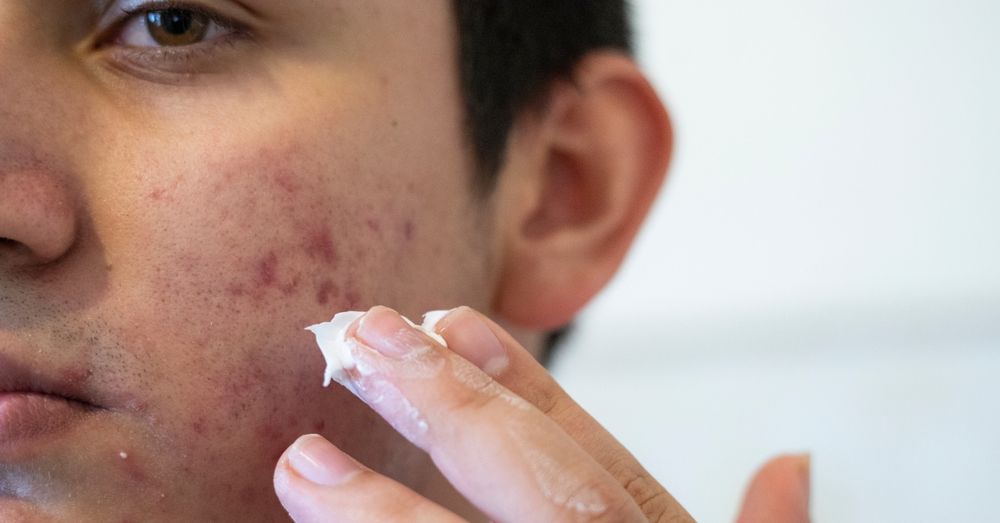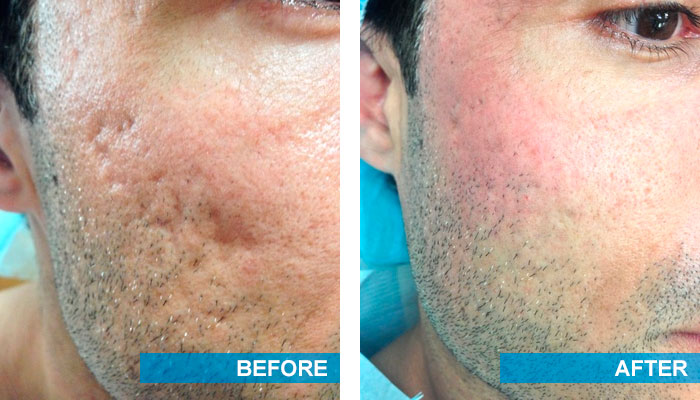The Effect of Skin Problem on Self-confidence: Reliable Techniques for Dealing With Acne Scars
Skin problems, specifically acne, can profoundly influence an individual's self-worth, typically creating barriers to social interactions and personal expression. Recognizing exactly how these methods can foster confidence might disclose necessary insights into alternative care methods that empower people to embrace their skin and improve their total top quality of life.
Mental Effects of Acne
Acne, a widespread skin condition influencing millions worldwide, can have profound mental results on individuals. The visible nature of acne typically brings about significant emotional distress, including feelings of embarrassment, low self-esteem, and social withdrawal. Many individuals with acne might experience anxiousness, especially in social scenarios, where they fear judgment or negative assumptions based upon their skin problem.
Research suggests that the mental influence of acne can be as devastating as the physical signs, adding to anxiety and body dysmorphic conditions sometimes - acne scars. Teenagers, that are often extra conscious peer viewpoints, might be particularly vulnerable, causing harmful effects on their social communications and scholastic performance
In addition, the preconception connected with acne can intensify sensations of isolation, as individuals may perceive themselves as less appealing or socially appropriate. This emotional problem can prevent personal connections and overall lifestyle. Therefore, it is crucial for doctor to address both the emotional and physical facets of acne, supplying detailed support that includes counseling and academic resources to aid individuals handle their condition efficiently.
Understanding Acne Scars
Dealing with the aftermath of acne typically includes confronting the marks it leaves, which can be a considerable resource of irritation and psychological distress for many individuals. Acne marks can manifest in different forms, mostly categorized into atrophic, hypertrophic, and keloid marks. Atrophic scars are characterized by a loss of tissue, resulting in clinical depressions in the skin, while hypertrophic marks include increased cells that develops in response to inflammation. Keloid scars, a more severe type, expand beyond the initial site of injury, presenting an unique obstacle for therapy.
The formation of acne marks is influenced by variables such as the severity of acne, the duration of inflammation, and specific recovery responses. Skin type and genetics also play critical duties in scar growth. Comprehending the organic systems behind mark development assists in resolving the emotional repercussions, as individuals might view their scars as irreversible pens of a previous struggle. This knowledge acts as the foundation for discovering reliable treatment approaches, encouraging individuals to take control of their skin problems and their self-esteem. Identifying the types and reasons for acne scars is necessary in browsing the course towards effective services.

Topical Therapy Choices
While numerous therapy methods exist for attending to acne scars, topical options are typically the very first line of protection for individuals seeking to boost their skin's look. These treatments can be efficient in reducing the visibility of marks and promoting general skin health.
Usual topical agents include retinoids, which enhance cell turnover and motivate the regeneration of skin cells, consequently improving appearance and tone. Furthermore, alpha hydroxy acids (AHAs) and beta hydroxy acids (BHAs) exfoliate the skin, removing dead skin cells and promoting a smoother surface area.
An additional prominent alternative is vitamin C lotions, recognized for their antioxidant residential or commercial properties and ability to brighten skin, which can aid lessen the look of hyperpigmentation related to acne scars. Hyaluronic acid is additionally advantageous; it moistens the skin and can plump locations impacted by scarring.
Non-prescription items including components like niacinamide and licorice remove may additionally assist in minimizing swelling and staining. It is important for individuals to seek advice from with a skin doctor to determine the most proper topical treatments tailored to their special skin kind and mark characteristics, taking full advantage of the potential for reliable results.
Advanced Dermatological Treatments
For people seeking a lot more immediate and substantial renovation in the look of this content acne scars, progressed redirected here dermatological treatments provide a variety of reliable choices. These procedures are made to target deeper skin layers, cultivating significant skin regeneration and remodeling.
One popular strategy is laser treatment, which uses focused light to resurface the skin and reduce the look of scars. Fractional laser treatments, particularly, work as they promote healing while targeting specific locations, lessening downtime. Chemical peels, which entail the application of acidic solutions, can also be beneficial by scrubing the skin and advertising brand-new cell growth.
Microneedling is one more cutting-edge choice, entailing using fine needles to produce micro-injuries that promote collagen production. This procedure enhances skin structure and reduces the visibility of scars over time (acne and acne scars treatment). Additionally, dermal fillers might be made use of to boost clinically depressed scars, giving instant quantity and smoothing the skin's surface area
These progressed procedures should always be done by qualified skin specialists, that can tailor treatments to private skin kinds and mark features, making sure optimal outcomes and decreasing risks. Similar to any kind of medical intervention, detailed assessment and consideration of possible side effects are necessary.
Structure Confidence Via Treatment

Creating a personalized skin care regimen that includes both topical therapies and specialist interventions is essential. Routine cleansing, peeling, and moisturization can help keep healthy and balanced skin, while treatments such as chemical peels or laser therapy might provide extra significant results. Past physical treatments, adopting an all natural strategy that incorporates healthy way of living options-- such as well balanced nourishment, hydration, and stress and anxiety management-- can additionally improve skin health and self-confidence.
Moreover, assistance from dermatological specialists can equip individuals to browse their therapy alternatives efficiently. Sharing experiences with others dealing with similar difficulties can cultivate a feeling of community and strength. Eventually, building confidence through care involves a diverse technique that the original source focuses on both skin wellness and emotional support, leading to a restored sense of self-regard and individual satisfaction.
Conclusion
Acne and its resultant marks can exceptionally impact a person's self-esteem and social interactions. Reliable therapy methods, including topical therapies and advanced skin-related treatments, play an important duty in resolving these problems. The implementation of an individualized skincare routine and involvement in self-care practices add to overall self-confidence enhancement. Assistance from specialists and community sources additionally boosts emotional resilience. Ultimately, attending to both the emotional and physical elements of acne marks is vital for cultivating positive self-image and wellness.
